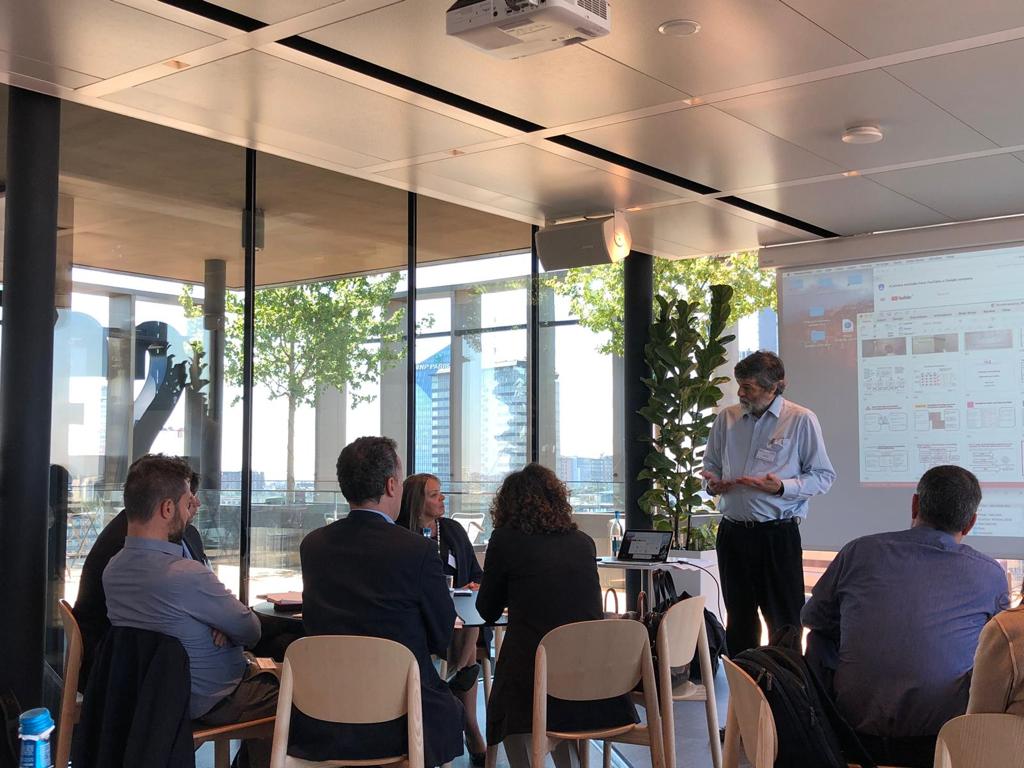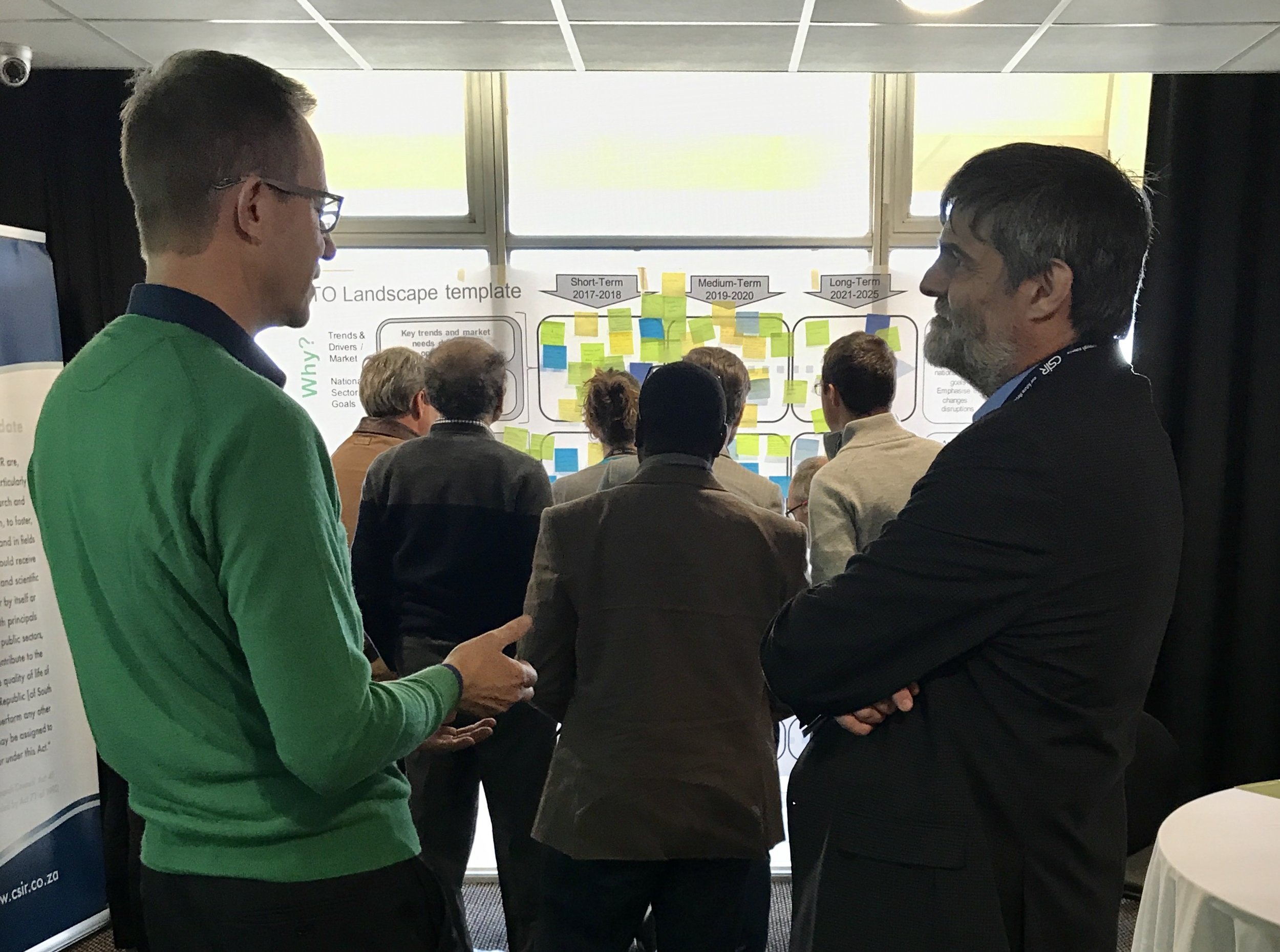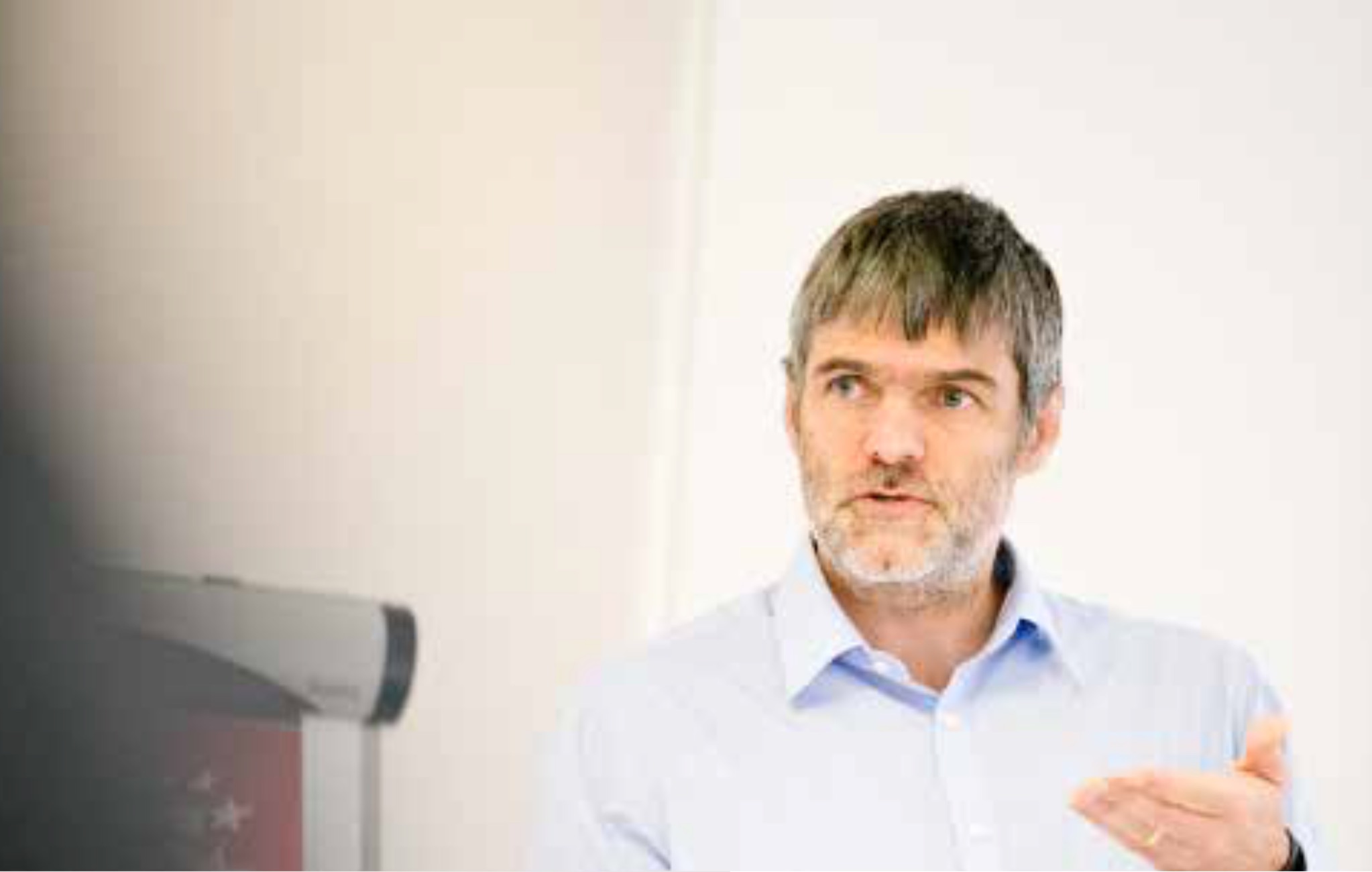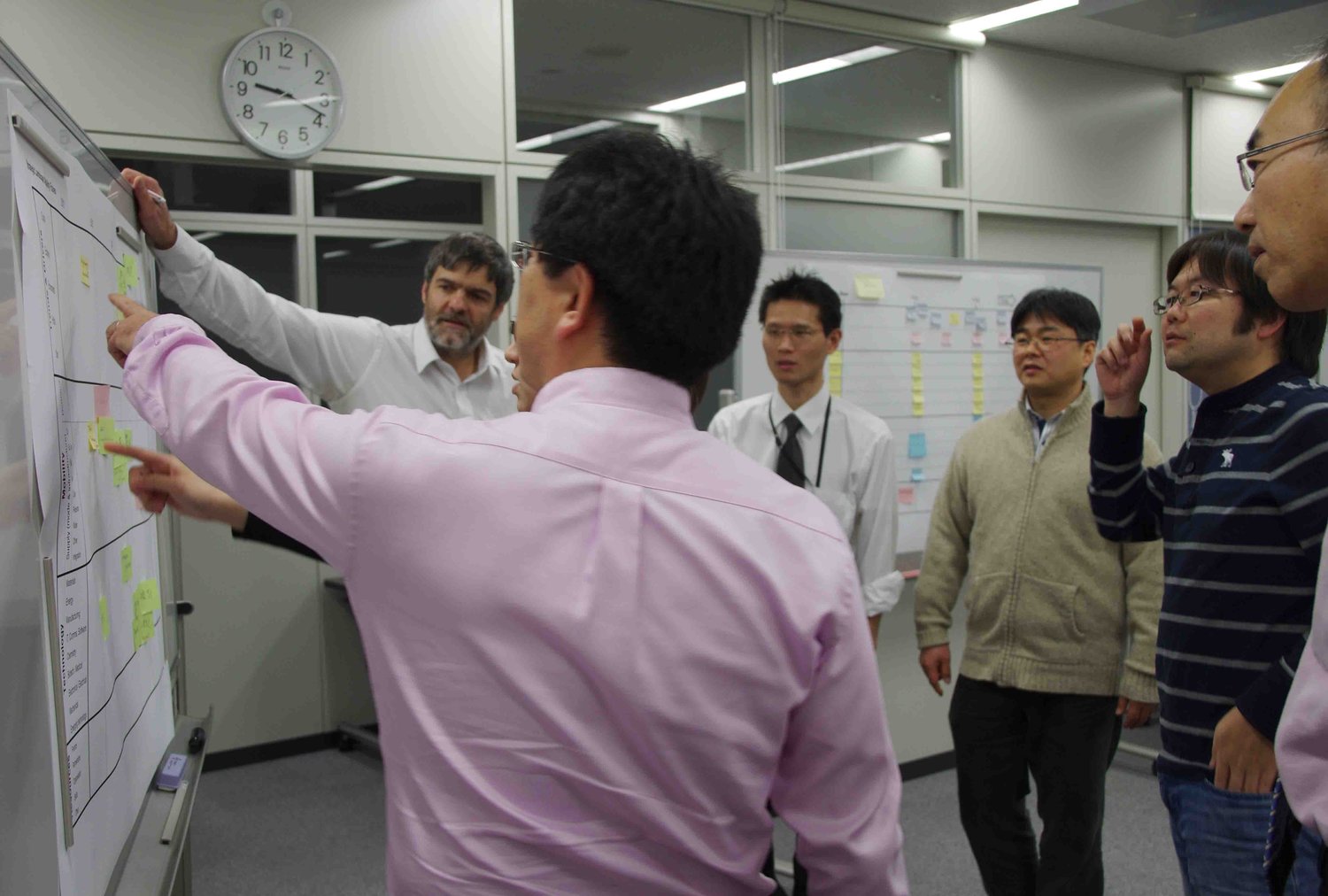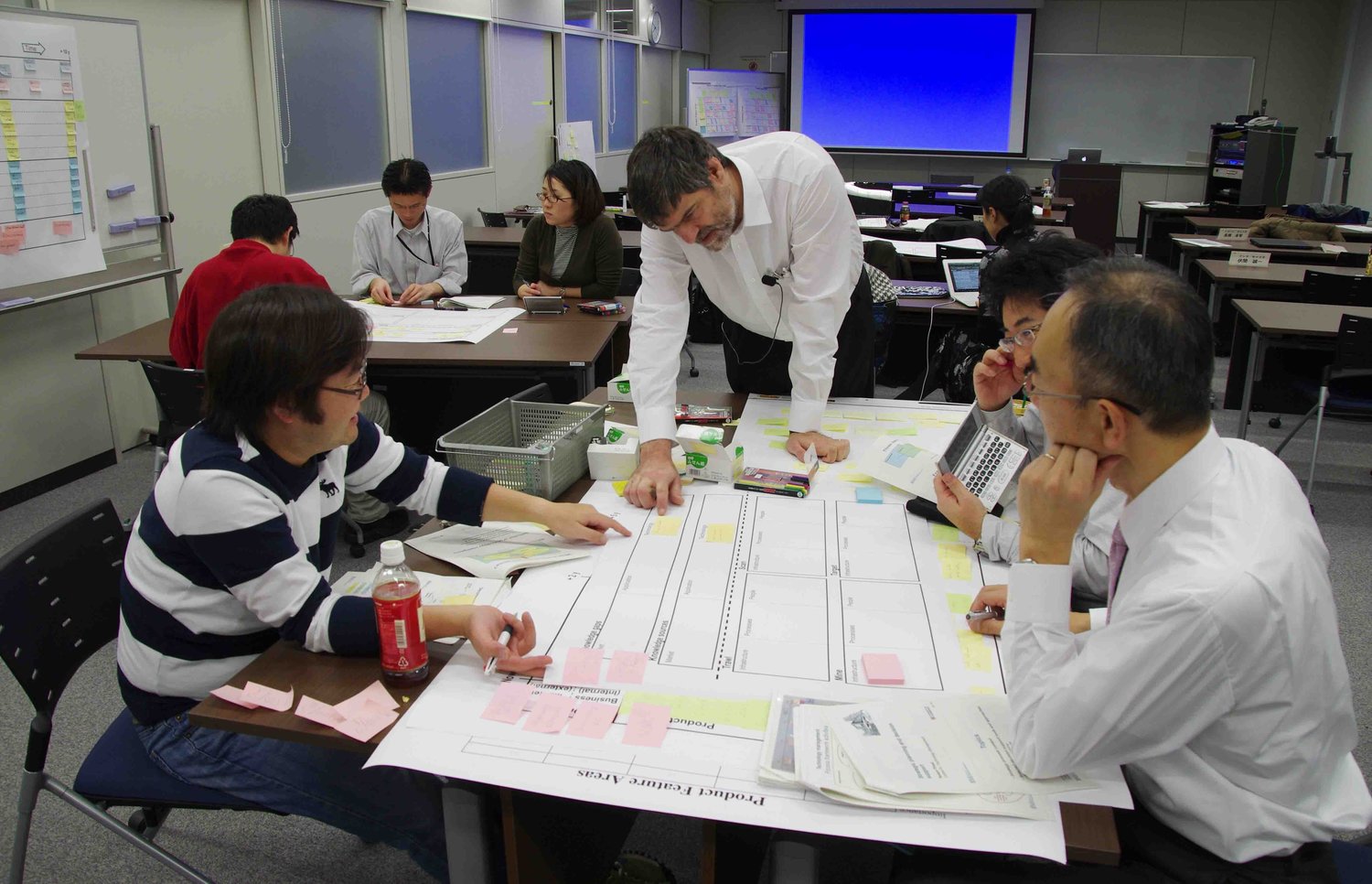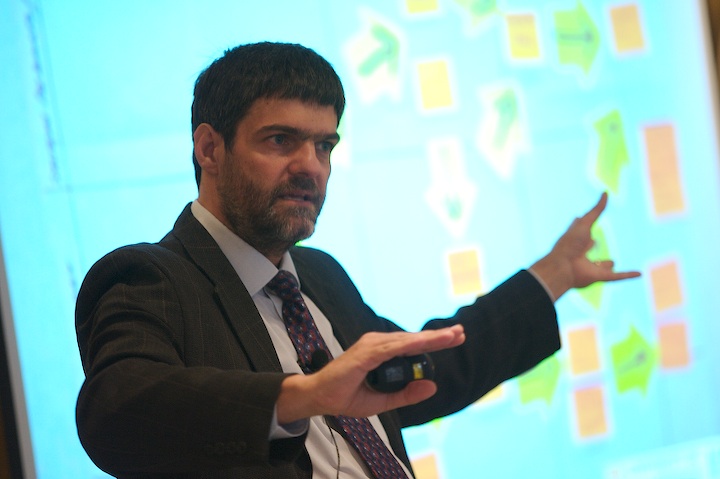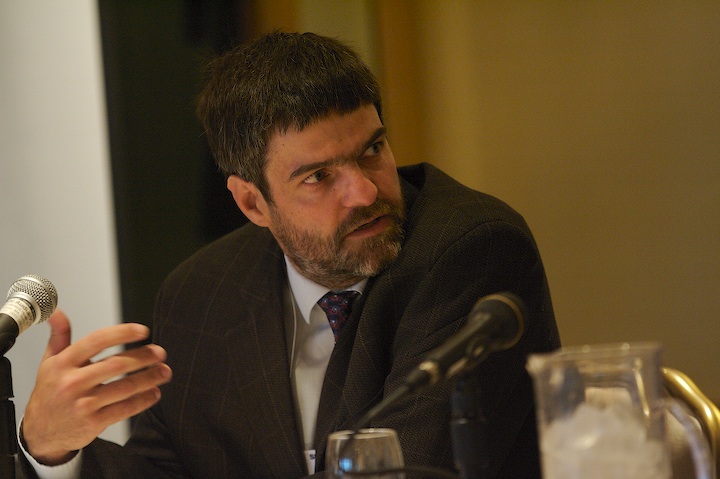Robert Phaal
Working in the Department of Engineering at the University of Cambridge, I research the application of engineering principles and methods to management and organisational challenges in the context of high tech innovation and strategy.
A pragmatic focus on problem-solving techniques provides an opportunity to address a dilemma faced by many managers... the bewildering proliferation of theoretical frameworks and practical methods available to them, fuelled by decades of consultant and academic endeavour.
Knowing how to use a few selected tools well, and how to adapt and combine them, provides a flexible foundation for building management systems. Established industry-proven approaches such as portfolio methods, roadmapping and quality function deployment (QFD) provide a solid basis to build on.
Implementing such methods takes time and effort, so a 'lean / agile' approach is advocated as an efficient and flexible point of departure ("think big, act small"), iterating fast as a learning process, and taking advantage of the visual nature of such tools for supporting cognition and communication.
Roadmapping is a particular interest as a platform for strategic toolkits, focusing on 'fast-start' workshop approaches that can help to deliver early benefits while learning how the method can help, minimising effort, cost and risk. The University of Cambridge's mission and core values encourage the "pursuit, dissemination, and application of knowledge" generated through research, with a 'learn by doing' collaborative transfer approach the most effective way to build roadmapping capability.
The aim of this website is to provide a personal perspective on roadmapping and related methods and concepts, some useful resources and occasional updates of substance.
If you have any queries regarding research, training, collaboration or other support please email me.
Rob Phaal PhD CEng
Contact: rob.phaal@eng.cam.ac.uk
Centre for Technology Management, Institute for Manufacturing
Disseminating research and methods through training workshops, seminars, keynotes and coaching:
Researching practical approaches through engaged scholarship:
"Replacing existing silicon chips with cheap lightweight plastic electronic technology could transform our world." Strategy for such early-stage technology-intensive innovation is challenging due to high levels of uncertainty, complexity and ambiguity.
Experience gained over the past 20 years in the application of roadmapping and related methods is broad, working with many organisations in a range of sectors, including:
academic, agritech, automotive, aviation, biotech, charity, chemicals, construction, defence, electronics, energy (oil & gas, nuclear, renewables), engineering, food & drink, FMCG, healthcare, government, ICT services, manufacturing, marine, materials, metrology, medical devices, mining, packaging, pharmaceuticals, rail, robotics, scientific instruments, social services, software, space, telecoms and utilities,
and at various levels, including:
products and services, platforms and portfolios, business units and corporations, trade associations and sectors, regions and national innovation systems,
addressing aims of various types, including:
identifying and exploring opportunities to exploit technology and other capabilities,
improving understanding of user and customer needs, solution fit and strategy,
innovation and technology strategy,
business and portfolio alignment and synergies,
programme and project strategy and coordination,
sector and regional strategy,
alignment of industry-university research,
technology, market and competitor intelligence,
identification and transfer of best practice,
workforce and capability planning,
collaborative programme coordination and initiation,
review and initiation of roadmapping initiatives,
organisational development / change,
at various scales, ranging from:
short part- and multi-day interactive workshops to multi-phase corporate strategy and sector level foresight programmes,
with keynotes, seminars, workshops and customised training courses delivered to companies, government agencies, consultancies and universities around the world, including:
Austria, Brazil, Canada, Chile, China, Colombia, Czech Republic, Denmark, Estonia, Germany, Hong Kong, India, Ireland, Italy, Japan, Jordan, Korea, Luxembourg, Malaysia, Mexico, Netherlands, Norway, Singapore, Slovakia, South Africa, Spain, Sweden, Switzerland, Taiwan, Thailand, Turkey, UK and the USA.
Word cloud created from 400 roadmapping project proposals
Genealogical map of roadmapping studies, 2002-18, from Park, H., Phaal, R., Ho, J.-Y. and O’Sullivan, E. (2020), ‘Twenty years of technology and strategic roadmapping research: a school of thought perspective’, Technology Forecasting & Social Change, 154.
Sven Schimpf (2016), 'Roadmapping in der Praxis' report, IAO Fraunhofer, Stuttgart 21 April 2016; visual recording of presentation by Isabelle Dinter
Concepción, Chile, October 2015
Launch of Chinese T-Plan translation, Tsinghua University Press, Beijing, 14 September 2009
If you have any queries regarding research, training, collaboration or other support please contact me at rob.phaal@eng.cam.ac.uk.

